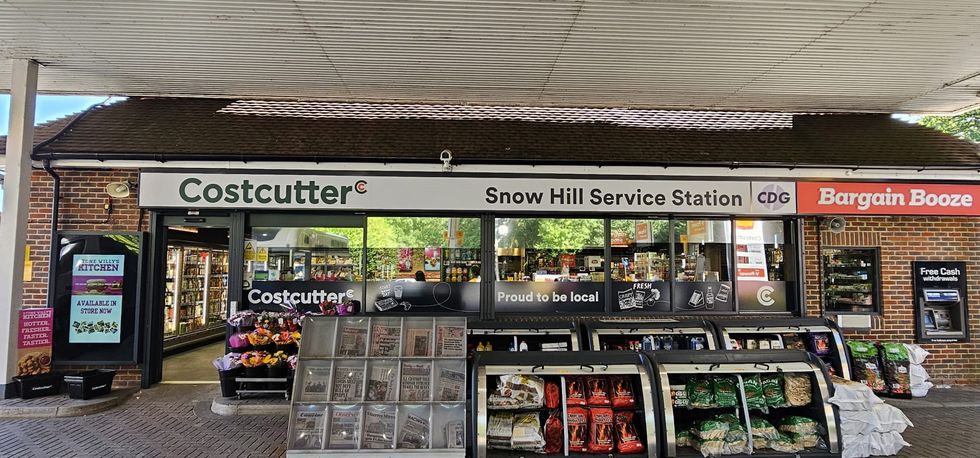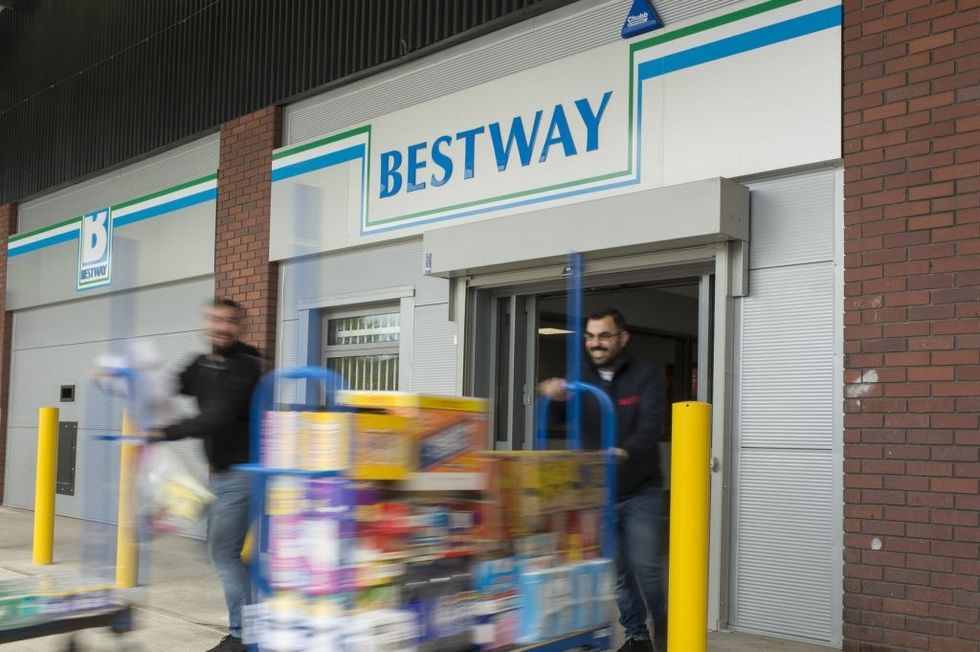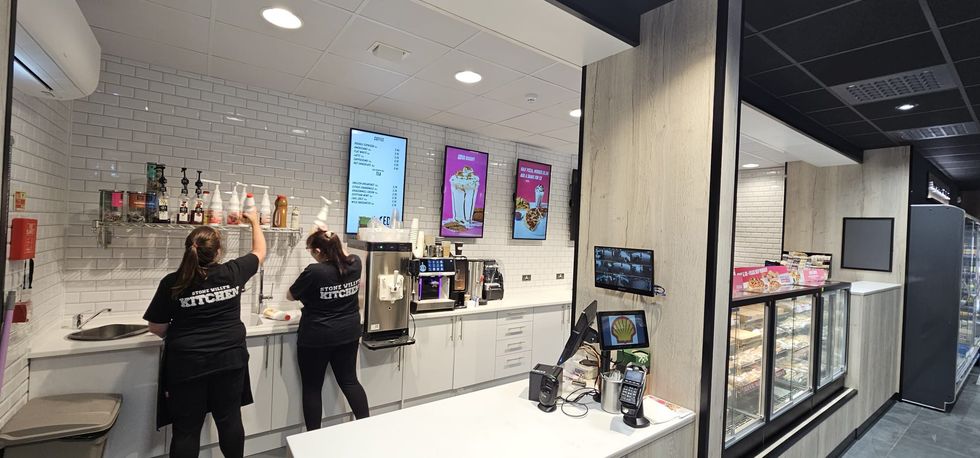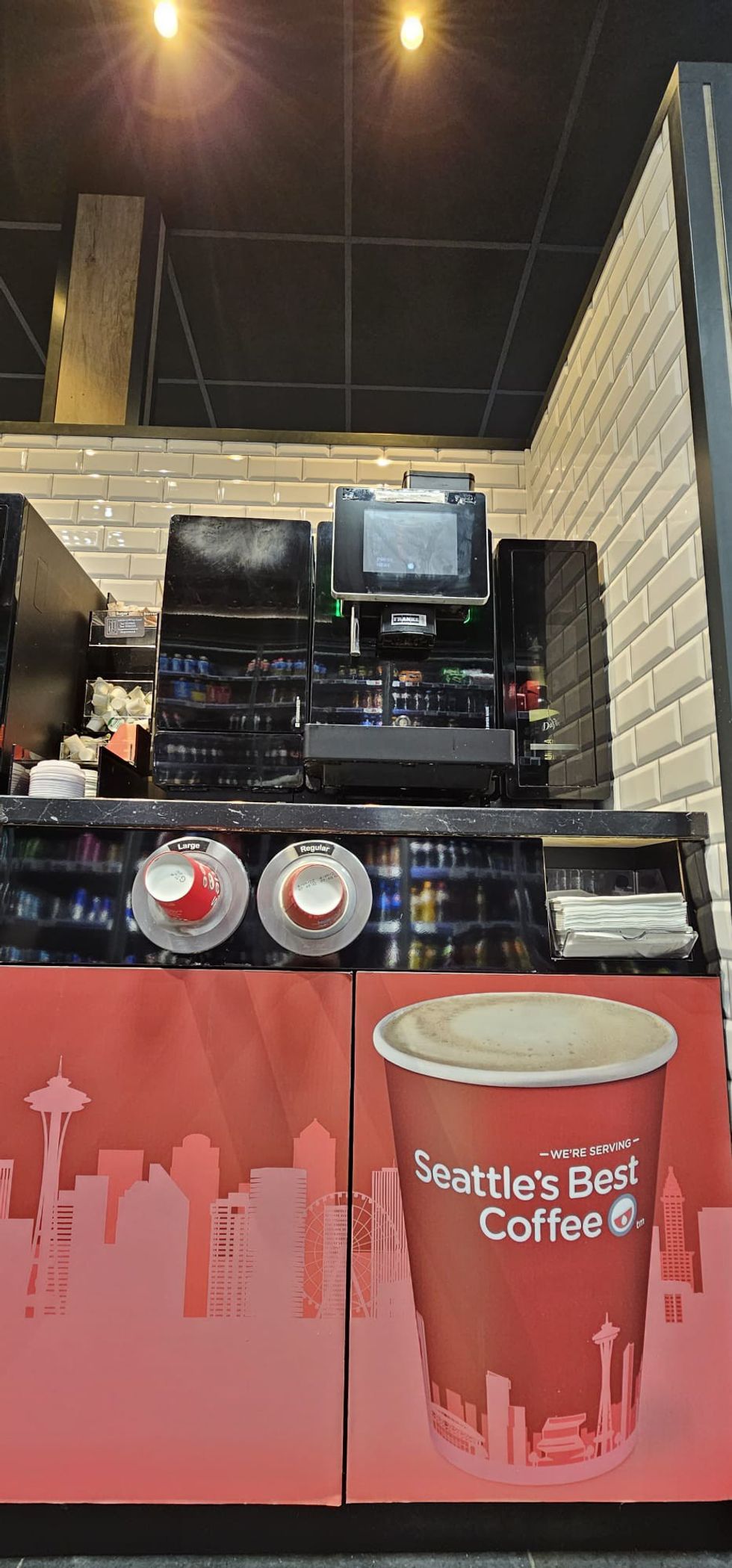David Wyatt explains how a major refit, great staff and a store-within-a-store spells success
David Wyatt, the recipient of the Symbol Retailer of the Year award at the 34th Asian Trader Awards, is a seasoned retailer who began his journey in retail at the tender age of 16 as a cashier, quickly progressing to management roles in his late teens and early twenties.
By 18, he was managing a petrol station at Fulham Palace Road in Hammersmith, London, and soon moved up to oversee multiple sites. His career took a pivotal turn 28 years ago when he joined Crawley Down Group, a family-run business where he has remained ever since, managing the Costcutter-Bargain Booze forecourt store in Crawley.
“The site wasn't built at that time, so I came down here beforehand, and here I've been ever since,” he says.
He has been associated with the Costcutter symbol group for over two decades, witnessing both the highs and lows of the brand.
“I remember being signed up by Jamie Davidson (now Retail Director at Bestway Wholesale) 20-21 years ago. So, we've been down the road with Costcutter for quite a while, during their ups and downs,” Wyatt reminisces.
Best of both worlds
In 2023, he oversaw a significant refit of his store, which included the introduction of the Bargain Booze concept alongside the Costcutter fascia. The dual-branded store has proven to be highly successful, particularly in expanding and improving the store's alcohol offering.
“We had a 24-hour off license, anyhow. So, when we had the opportunity to put a Bargain Booze in, with their range, knowledge and pricing, it seemed a no-brainer, and it really was the right decision,” he explains.
“Because it's clear that Bargain Booze had a wealth of experience on wines, on RTDs, ciders, and their promotions – it's a little bit different. They have a taste in the wines and everything, which is a bit more sort of you see in Marks and Spencer and Waitrose. It was a different proposition, and I must admit, it's been an amazing success in the last year.”
In addition, he has been able to increase his spirits range by 400 per cent, while stocking products in smaller quantities.
“I don't have to buy everything by the case. So being able to have a bigger range and only purchasing one or two bottles, again, from a cost perspective, I'm not sitting on so much stock. So that worked very well,” he says.
Wyatt values the support from Bestway Wholesale, the owner of Costcutter and Bargain Booze brands, and the strong relationships he has built with the group.
“I'm quite a loyal person. I've been loyal to Costcutter, Shell, and I think that's reciprocated when I have problems. And that's relationship, isn't it,” he says. “The people that I've come in contact within Costcutter, whether that's Jamie Davidson or Adrian O'Brien [Head of Symbol – Bestway Retail], they're all very knowledgeable people, so I lean on their shoulders when required.”
He considers the store-in-store concept being promoted by Bestway Retail as a step in the “right direction.”
“They're driving forward within the symbol groups, and putting brands together makes the proposition for the customer stronger,” he adds.
A significant aspect of Wyatt's retail strategy involves leveraging the Co-op on brand range, which he finds particularly crucial in the current economic climate.
“Co-op is a strong own brand, and within each category, we have a quite a strong representation of Co-op own brand,” he says.
“It's important that the customers, who are more price conscious, need to have the option on the shelf alongside the normal brand that may be more expensive. Co-op is well known, trusted, and especially within the chilled, Co-op own brand is very important to us.”
Expanding innovation
Wyatt's innovative approach to retail is evident in the cutting-edge features and carefully-curated product categories of his store.
One of Wyatt’s key innovations is the introduction of electronic labeling. He views this as more than just a cost-saving measure, emphasising the precision and professionalism it brings.
“There is a cost to staff putting out labels, and then there's a cost of having electronic labels. But then I think that's only part of the story,” he explains.
“One of the things that I found, especially in bigger stores, is that if you're relying on staff to put out X amount of labels, at any given time, you can't be sure that all your prices are correct, whereas with electronic labels you know the price is always correct.”
The labels not only display the price but also provide comparisons with competitors such as Tesco Express, giving customers confidence that they are getting a good deal.
“So, yes, there's a cost saving, and there's a cost to have them. But to my mind, you know that you have peace of mind of every single price in the shop is correct. And to me, it's a no brainer. You just have that confidence. You don't have people coming to the till saying the label says, ‘it’s this price and it's the wrong price’,” he says.
The labels also streamline promotions, allowing customised spotlight displays for seasonal campaigns, which improve the overall store presentation and customer engagement.
“With this, say, with Halloween coming, I can create a Halloween spotlight. Add in the products, and all those labels will have, like a little skull or pumpkin or whatever I decide on those products. It's all done electronically. Otherwise, you'd have to go out on some of these things. Costcutter kind of sends out the things they deem relevant to Halloween, but you could put anything on there. So again, it gives you flexibility,” he adds.
Top sellers
Wyatt's food-to-go offering also sets his store apart from competitors, positioning it as a convenient and competitive option in the local market that has the presence of chains like Subway, Greggs and Costa Coffee.
“Within the food to go, I wanted to create something a little bit more bespoke. So, I work with Stone Willys Kitchen, they do wraps and pizzas and things like that. I bought a milkshake machine, so we create our own milkshakes, barista coffee machine, so we can do coffees. We're just starting on smoothies as well. And I am doing a lot of work at the moment with Delice. We swap out a lot of our breads and cakes and croissants and the like,” he explains.
The store offers an impressive array of meal deals, catering for breakfast, lunch, and dinner.
“As opposed to just having a sandwich meal deal, we’ve got wrap meal deals, burger meal deals, breakfast meal deals, helping people to save money by widening what is normally known as a like just a standard meal deal,” he adds.
Though an initial attempt at click-and-collect didn’t take off, partly due to the due to the efficiency of their grab-and-go system. “We found that people would just come in, because they could just grab and go whatever they wanted,” he says – Wyatt is now preparing to expand his food to go offerings via Just Eat, aiming to meet off-site demand while extending service hours.
“Delivering off site is our next sort of target, because we've held off of that for the last year just to get the offering right on site,” he says, adding: “Part of the problem is purely finding staff and having the right person here at that time of the day to grow it. We used to close (food to go) at two, now we've gone to seven, but we have a licence to go to 11. I think Just Eat and, especially the pizzas etc. will help support expanding the hours.”
His next big ambition is to capitalise on the growing demand for protein products. “We're looking within our food to go, touching on protein shakes, protein meals, protein on-the-go, snacking. I think that's probably the next growth area,” he predicts.
Wyatt's store has a thriving vape section, which generated over £120,000 in sales between May and September alone. His foresight in building dedicated vape display units, along with his collaboration with major brands like Titan, Elfbar, and Liberty Flights, positions his store as a leader in the evolving vape market.
With an eye on the impending disposable vape ban, Wyatt is now actively guiding customers towards more sustainable and cost-effective pod and liquid-based systems.
“Over the last two years, we have navigated all the ranges, as soon as it is out, we've done it. Now, over the last six months, obviously, it's been a shift to the pods, and we've managed that,” he says.
“We're managing with explaining the benefits of the cost savings for customers, because ultimately, they need to come up with disposable and they need to go on to a rechargeable product. And with that in mind, I've worked with Liberty Flights, so that we have a strong liquid base product as well as this.”
Wyatt is confident that vaping will remain a key category in his store’s future success.
“People still want the disposables, they like the flexibility. But we're noticing the transition over to IVG and these types of products. Also, you're seeing a lot of maneuvering by whether it's Elfbar, Crystal, Gold bar, they've got the four-in-one, the six-in-one, the 10,000-puff pods. If you are loyal to a brand, they're putting out the large product now. So, by the time the ban comes in, I think most people will have converted to a larger product anyhow,” he notes.
“So, we are there to support, guide, help. It's been a big category, but I think it can remain a big category. And it has been a massive area for us.”
Key to success
Wyatt is quick to acknowledge that the backbone of his success is his staff.
“Ultimately, everything comes down to my staff,” he emphasises. “We got a lot of staff that have been here a long time. They're loyal. They offer good customer service. We've created a good shopping environment, but keeping my staff is the most crucial thing.”
Whether it's ensuring they feel supported in the face of challenges like theft or paying above minimum wage to retain talent, Wyatt believes that looking after his team is paramount.
“That's the key thing. It may not be flashy or anything, but I think you’ve got to put an arm around them. Look after them, because without them, the job is very difficult, isn't it?”
Wyatt also offers a valuable piece of advice: embrace change.
“Times change. Change is coming all the time and to be ahead of it and to work with it is probably the key thing that I need to do, and that would be my tip to anyone else,” he reflects.










